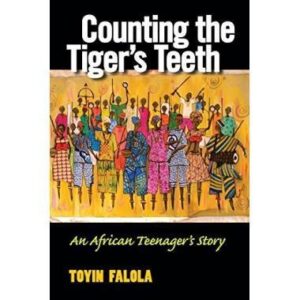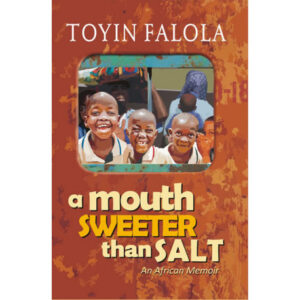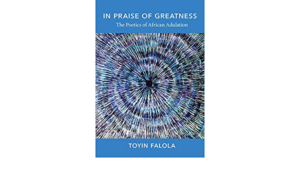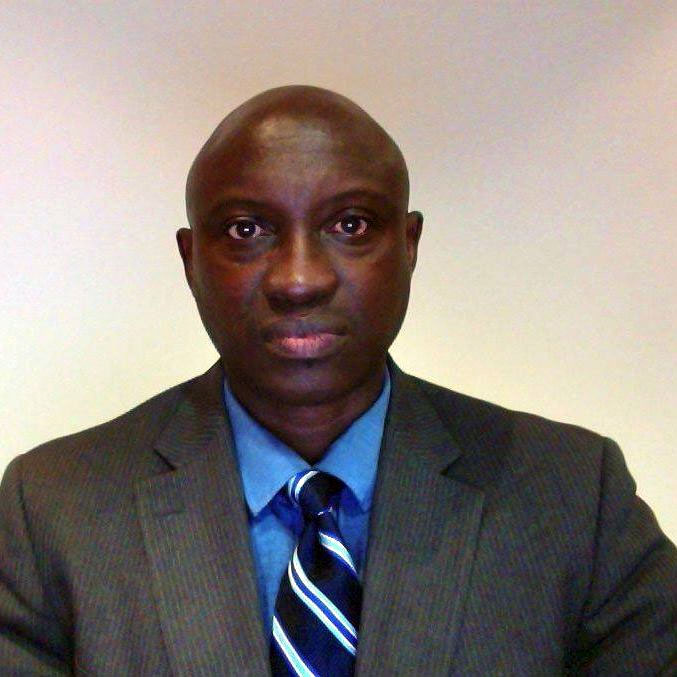By Oluwatoyin Vincent Adepoju
“You cannot stand in one spot to watch a dancing mask,” states an Igbo proverb quoted by the novelist Chinua Achebe. You need to watch the mask from various vantage points in order to better appreciate its dynamism, its combination of visual power and dazzling motion.
As with the mask, so with life. Its scope cannot be adequately appreciated from one perspective, from any one body of ideas and insights. The ever-unfolding totality of approaches to understanding reality represent human efforts to grasp the ultimately ungraspable.
Even then, the quest is central to what makes us human. The hunger to know as much as possible about this universe we find ourselves in, a pursuit taking the seeker into various disciplines, various bodies of knowledge. One such seeker I deeply admire is Toyin Falola, the “dancing mask” of many sides, whose multifaceted genius needs multiple vantage points to appreciate.
Through a consistently unfolding series of books he writes, co-writes, edits or co-edits and through various book series he has instituted with different publishers, there steadily unfolds a kaleidoscopic window of the African continental and African Diasporic experience, as seen by various eyes, spoken by varied voices.

Falola’s multidisciplinary creativity
His academic education is in history. From the grand narrative about the scope of the human journey that is history, he enters into various tributaries of the mighty ocean, seeking, in the rivers, creeks and other waterways that feed into the tumultuous sea, the varied motivations and engagements with reality that define human existence. He is particularly interested in those who still people the continent from which humanity branched out across the world, Africa, as well as in the journeys of Africans across the ocean into the Americas.
Falola’s work is to be found in every area in which Africans are active, with the sciences being the only field he has not explored in depth, perhaps because he considers himself safer within the humanities and social sciences, ready areas of competence for him. Even then, the study of the history and philosophy of science in relation to Africa would benefit from the depth of consistent exploration that Falola brings to his scholarly projects.
Falola is a scholar and mobilizer of scholarship whose achievement dazzles with the glory of the sun at noon. The relentless creativity represented by this achievement, its year after year, decade after decade of engagement with almost all aspects of the African experience requires constant reevaluation. In this essay, I examine a brief selection of Falola’s works, beginning from his latest book, published this year, to other publications from the last nine years.
On a selection of books edited by Falola
I begin from Falola’s most recent publication, The Palgrave Handbook of African Oral Traditions and Folklore, 2021, edited by Toyin Falola and Akintunde Akinyemi.
Looking through the contents of this book, and even more, reading the survey of the contents in the introduction by Falola and Akinyemi makes clear the staggering scope of ambition and execution the book represents. Comparing the book with more recent single and multi-authored productions in the field and going back to the second generation texts by such scholars as Isidore Okpewho and first generation works represented by Ruth Finnegan’s African Oral Literature makes it clear that unless there is another work of this scope in existence, this is likely to be the most expansive study of the field and the most up to date, spanning the foundations of African oral literature in orality centred societies to the crossing over, across centuries, of African oral literature into contemporary digital media.
Another book edited by Falola and published shortly before the one on oral traditions is The Philosophy of Nimi Wariboko: Social Ethics, Economy and Religion, 2021, in which Falola has two long essays, one of which is the introduction. This is a fantastic production on an amazing scholar whose work ranges across Kalabari thought, Pentecostalism, Continental philosophy, Urban Studies and economics, published in a sequence of trenchant books. The Philosophy of Nimi Wariboko is the first book on Wariboko, foregrounding and contextualizing his creativity through analyses from scholars in various disciplines, on various continents, exploring his work from diverse angles, along with an overarching exposition of Wariboko’s world view and expressive styles, a monumental text.

Refencing another multi-authored book on the creative achievement of an individual, Victor Ekpuk: Connecting Lines Across Space and Time, 2018, was also initiated, organized and edited by Falola. It is the first print book on Ekpuk, an artist remarkable for his transposition of the aesthetics of the ancient Nigerian Nsibidi symbol system, dramatizing both its esoteric allure and its potentially playful possibilities in a manner that is distinctively Ekpuks’ as he creates his own expressive language through this inspiration, in harmony with other inspirations from different cultures.
Before the Ekpuk book, The Palgrave Handbook of African Philosophy, edited by Falola and Adeshina Afolayan, 2017, was published. It is another multi-authored text comprising essays written for that volume, as most of Falola’s edited multi-authored texts known to me are.
This handbook is an encyclopedic exploration of the scope of African philosophy, sweeping in its examination of broad issues and incisive in its analysis of specific ideas, in relation to the role of philosophy in various aspects of existence, with particular reference to Africa. It is one of the more up to date in the field, if not the most up to date, distilling the achievement demonstrated by the history of the discipline, introducing new voices and integrating them within a sensitivity to contemporary developments.
In 2013, Esu: Yoruba God, Power and the Imaginative Frontiers, edited by Falola, was published. This is a comprehensive exploration, by scholars from various parts of the world, spanning diverse disciplines and referencing information from Africa and beyond, of one of the richest, most complex figures of Yoruba origin Orisa cosmology, thereby creating perhaps the most informative, multi-authored and almost certainly the most up to date book on Esu, a distinction its likely to enjoy for a long time, so broad is its thematic scope and so ancient and yet modern its temporal range.
In 2020, The Palgrave Handbook of African Social Ethics, edited by Falola and Wariboko, was published, examining ethics in relation to Africa across the family and community, the state and politics, economics, culture and religion, fed by the combination of Wariboko’s scope of engagement as an ethicist and Falola’s range as a multidisciplinary humanities scholar, both orientations addressing both older and contemporary imperatives.

That list of texts is a small selection from Falola’s edited works in which he writes the introduction, when he is sole editor or co-writes it when he is joint editor and often contributes at least one sole authored essay to the book. This selection is decided by the fact that these are the Falola books I am familiar with at the moment as I proceed with studying his works.
What of if the selection of Falola edited books from which I have made these presentations were both numerically larger and broader in terms of disciplines, representing the more extensive range of Falola’s edited works?
Could such a larger scope of possibility imply that studying Falola’s edited books enriches our understanding of Africana Studies with some of the most comprehensive and most up to date texts in the field?
On two sole authored books by Falola
Let me now turn to some of Falola’s sole authored essays and books, again using texts I’m well acquainted with. The first Falola book I read was The Toyin Falola Reader on African Culture, Nationalism, Development and Epistemologies, 2018, which examines the African experience within the mother continent and the Americas through social, economic, intellectual, educational and literary history and philosophical analyses, a very competent achievement yielding a panoramic view of modern African developments, enriched by detailed analysis of specific issues within its historical sweep.
In this selection of Falola’s essays, two, “Pluriversalism’’ and “Ritual Archives,’’ stand out for me for analytical, expository and imaginative force.
“Ritual Archives’’ is particularly striking in being developed both through a conventional argument employing linear logic as well as being an imaginative exercise, where the author dramatize his vision of the distillation of African thought and practice as scholarly vehicles through a meditation on the deity Esu.
Through the imaginative exercise he conducts in the essay, Falola transposes the material character of ritual to the mental plane, where the imaginative force of ritual is concentrated, a reworking of ritual already well developed in Hinduism, Buddhism and Christianity but only slowly growing in Orisa spirituality as it expands to include a broader range of theological perspectives and approaches to sacred action.
My favourite sole authored book by Falola is In Praise of Greatness: The Poetics of African Adulation, 2019. It is a series of short biographies and assessments of the achievements of various figures, either Africans or related to Africana Studies, enriched by poetry in Yoruba and English and subsumed by a meditation on life, death and the afterlife, on mortality and immortality, understood both in physical terms and in relation to the tracks of memory and the enduring impact of ideas.
The beautiful, small full colour paintings of each figure discussed and the rich jacket enclosing the book’s sturdy hardback makes it a visual feast and a pleasure to hold, a delicacy reverently clasped as one devours it, even as it remains undiminished as it feeds one’s hunger.
What makes Falola’s achievement unique is what I will call the principle of collective growth. Most humanities, and I expect, social sciences scholars, and particularly those who are academics—scholars employed by institutions of higher education— are self centred in their work. Not surprising, given the often-solitary mobilization of mental and physical resources, often across the span of years, required to practice scholarship. This challenge is greater within academia on account of the particularly high level of mental and physical effort, sustained for decades through rigorous discipline, from schooling to self-directed scholarship, necessary for academic success.
These challenges are particularly acute in an academic environment such as that of the US, where Falola migrated to from Nigeria and where he now works as an academic. Unlike in Nigerian academia, promotion up the ranks does not guarantee a permanent job in the US academy. The academic in the US system is more or less on probation even as they develop themselves into highly published and well recognized scholars whose work is deeply respected by their peers. The final decision as to the security of the academic’s job rests with the university, which may or may not eventually grant them tenure, the term in the US for a permanent academic job. Without tenure, an academic’s job might not be secure.
Thus, within the “publish or perish” culture that often defines academia and even more so in academic environments like that of the US, its challenging enough to harness one’s own resources for success. This could explain why, within the context of humanities scholarship in academia, working together to achieve joint success does not seem common.
Falola operates differently, however. He generates success in himself and helps thousands of others cultivate their own success, explaining why he is one of the world’s most successful scholars.
Falola operates at a distinctively different level, unlike any other known to me. By working in terms of a principle of individual and collaborative action, he multiplies his scholarly and interpersonal impact, the impress of his efforts in the world of ideas and knowledge and his creatively shaping influence in the lives of others, far beyond what he would have achieved if he had focused on working alone as represented by sole authored texts, as most scholars and academics do.
Ever since he began his scholarly publishing career shortly after completing his PhD at the then University of Ife, Falola has consistently combined, almost on a yearly basis, sole publication of articles and books, with publications where he is editor or co-editor, either of existing texts selected by himself, or of newly written texts in a scholarly initiative created by himself or with a co-editor. He is also keenly alert to ideas for book publishing emerging from the efforts of others, as I can testify from my interaction with him.
Through these methods, involving sole authored and collaborative publishing, his publishing presence soars astronomically, even as the constellation of scholars constituted by his collaborators are empowered in terms of their own impacts in the world of knowledge. They are further enabled through the scholarly training realized by participating in the dynamic and highly efficient publication network Falola has created. Their academic careers are elevated and strengthened, with positive implications for professional visibility and job security.
Cooperation, mutual enablement is key to surmounting the challenges faced by Africana Studies worldwide and by African scholars within and beyond Africa. Such cooperative work is one of Falola’s great strengths as a remarkable scholar and a great cultivator of human potential in relation to scholarship, as his work contributes to cultivating an endogenously grounded though globally interdependent African scholarly tradition within knowledge empowered development in Africa.
He pursues this vision through co-writing and co-editing books with scholars at different stages of their careers, including doctoral students, providing publishing opportunities for any competent person, inside or outside academia, such as Independent Scholars as myself, engaging as writers scholars skilled in the varied subjects his works address, even if they don’t have academic training in those fields, like I am self-educated in the fields of art and philosophy on which I have contributed to Falola’s edited books.
He works on multiple sole authored, co-authored, sole edited and co-edited texts simultaneously, often across years. As these projects mature into birth, they suggest a sense of miraculous, multiple flowerings. The fruits of a great river flowing underground across a far distance, eventually rising above ground to wondering eyes.

The calabash of time and infinity
History is a story told by different people, in different ways, seeing and describing the same thing, the same objectively verifiable happenings, from their own perspectives. What kind of story or stories are told by the collection of works emerging from the publishing network generated by Toyin Falola or by others, such as Olajumoke Yacob-Haliso, Adeshina Afolayan and Samuel Oloruntoba, whose originating platforms as knowledge curators, organizers of knowledge as book editors and writers, beginning as co-writers and co-editors with Falola and expanding into organizing their own edited book series, complementing their sole authored texts exploring various aspects of the African experience?
I am intrigued by patterns, patterns in terrestrial nature, patterns shaping the cosmos and patterns of interpretation of the significance of those material realities and of the human mind exploring those concrete forms.
I am haunted by the hunger for keys to the meaning of existence as dramatized in its unfolding possibilities. “Olo-du-mare,” “the owner-olo- of-odu,” odu, the calabash of existence from which each moment is born, is Shloma Rosenberg’s interpretation, at his site Mystic Curio, of the meaning of the name “Olodumare,” the name of the supreme creator as understood in Yoruba origin Orisa cosmology.
I am intrigued by that calabash, its sphericality suggesting infinity, its concavity the depth of existence, as the complex of related calabash images in classical African thought, from Igbo to Zulu philosophy, may be described.
Falola is an explorer of this calabash, an investigator of the sea of time and the multiple rivers emerging from and feeding into it.
Dancer of the mask, what story are you telling us? Are you unfolding a vision of the African journey, in particular, and the human journey, in general, a perspective on its significance? Or are you simply a seeker yourself, a traveller seeking answers, sharing his travels across landscapes of possibility?
I am not developing a central idea, he says, of some of the essays in his The Humanities in Africa, 2016, but “an elaborate and systematic network of ideas on a given subject,” he concludes in his introduction to that volume.
What may one learn from Abdul Karim Bangura’s Falolaism: The Epistemologies and Methodologies of Africana Knowledge, 2019, and its predecessor, his Toyin Falola and African Episemologies, 2015, Bangura’s investigations of questions similar to those I am asking?
Dance on, O great mask, your footsteps vibrating across space and time.
- Oluwatoyin Vincent Adepoju is an Independent Scholar whose work is centred in the comparative exploration of the visual and verbal arts, philosophy, spirituality and science. He is the founder and director of the research and publishing initiative Compcros, Comparative Cognitive Processes and Systems.


